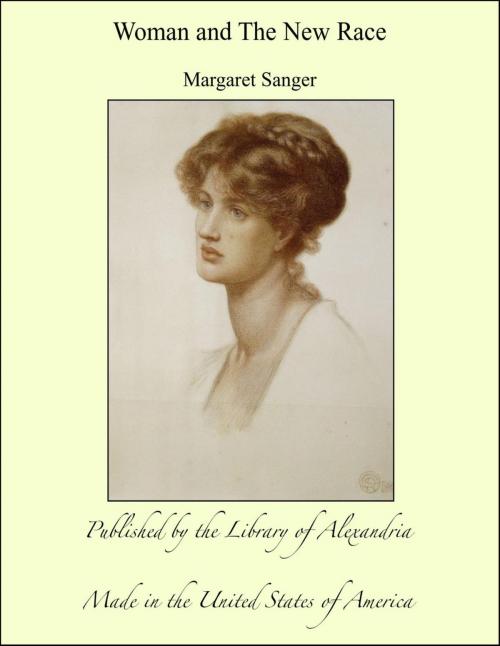| Author: | Margaret Sanger | ISBN: | 9781465579843 |
| Publisher: | Library of Alexandria | Publication: | March 8, 2015 |
| Imprint: | Language: | English |
| Author: | Margaret Sanger |
| ISBN: | 9781465579843 |
| Publisher: | Library of Alexandria |
| Publication: | March 8, 2015 |
| Imprint: | |
| Language: | English |
THE modern Woman Movement, like the modern Labour Movement, may be said to have begun in the Eighteenth century. The Labour movement arose out of the Industrial Revolution with its resultant tendency to over-population, to unrestricted competition, to social misery and disorder. The Woman movement appeared as an at first neglected by-product of the French Revolution with its impulses of general human expansion, of freedom and of equality. Since then, as we know, these two movements have each had a great and vigorous career which is still far from completed. On the whole they have moved independently along separate lines, and have at times seemed indeed almost hostile to each other. That has ceased to be the case. Of recent years it has been seen not only that these two movements are not hostile, but that they may work together harmoniously for similar ends. One final step remained to be taken--it had to be realised not only that the Labour movement could give the secret of success to the woman movement by its method and organization, but that on the other hand, woman held the secret without which labour is impotent to reach its ends. Woman, by virtue of motherhood is the regulator of the birthrate, the sacred disposer of human production. It is in the deliberate restraint and measurement of human production that the fundamental problems of the family, the nation, the whole brotherhood of mankind find their solution. The health and longevity of the individual, the economic welfare of the workers, the general level of culture of the community, the possibility of abolishing from the world the desolating scourge of war--all these like great human needs, depend, primarily and fundamentally, on the wise limitation of the human output. It does not certainly make them inevitable, but it renders them possible of accomplishment; without it they have been clearly and repeatedly proved to be impossible.
THE modern Woman Movement, like the modern Labour Movement, may be said to have begun in the Eighteenth century. The Labour movement arose out of the Industrial Revolution with its resultant tendency to over-population, to unrestricted competition, to social misery and disorder. The Woman movement appeared as an at first neglected by-product of the French Revolution with its impulses of general human expansion, of freedom and of equality. Since then, as we know, these two movements have each had a great and vigorous career which is still far from completed. On the whole they have moved independently along separate lines, and have at times seemed indeed almost hostile to each other. That has ceased to be the case. Of recent years it has been seen not only that these two movements are not hostile, but that they may work together harmoniously for similar ends. One final step remained to be taken--it had to be realised not only that the Labour movement could give the secret of success to the woman movement by its method and organization, but that on the other hand, woman held the secret without which labour is impotent to reach its ends. Woman, by virtue of motherhood is the regulator of the birthrate, the sacred disposer of human production. It is in the deliberate restraint and measurement of human production that the fundamental problems of the family, the nation, the whole brotherhood of mankind find their solution. The health and longevity of the individual, the economic welfare of the workers, the general level of culture of the community, the possibility of abolishing from the world the desolating scourge of war--all these like great human needs, depend, primarily and fundamentally, on the wise limitation of the human output. It does not certainly make them inevitable, but it renders them possible of accomplishment; without it they have been clearly and repeatedly proved to be impossible.















